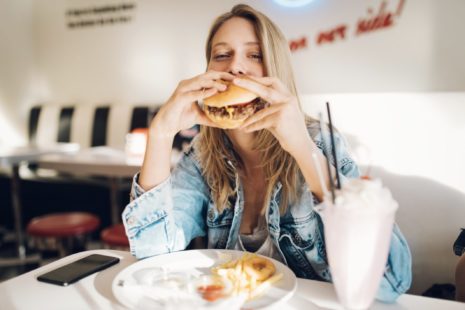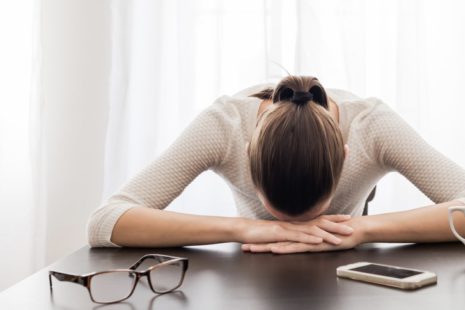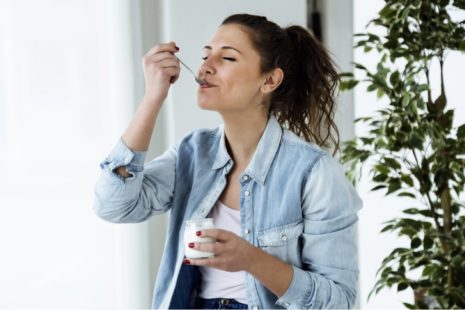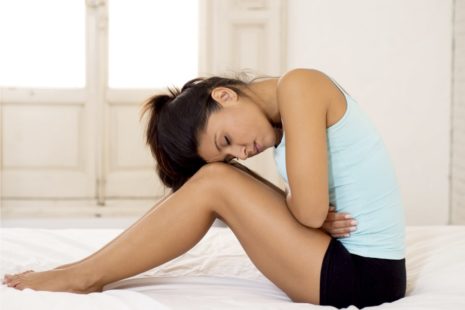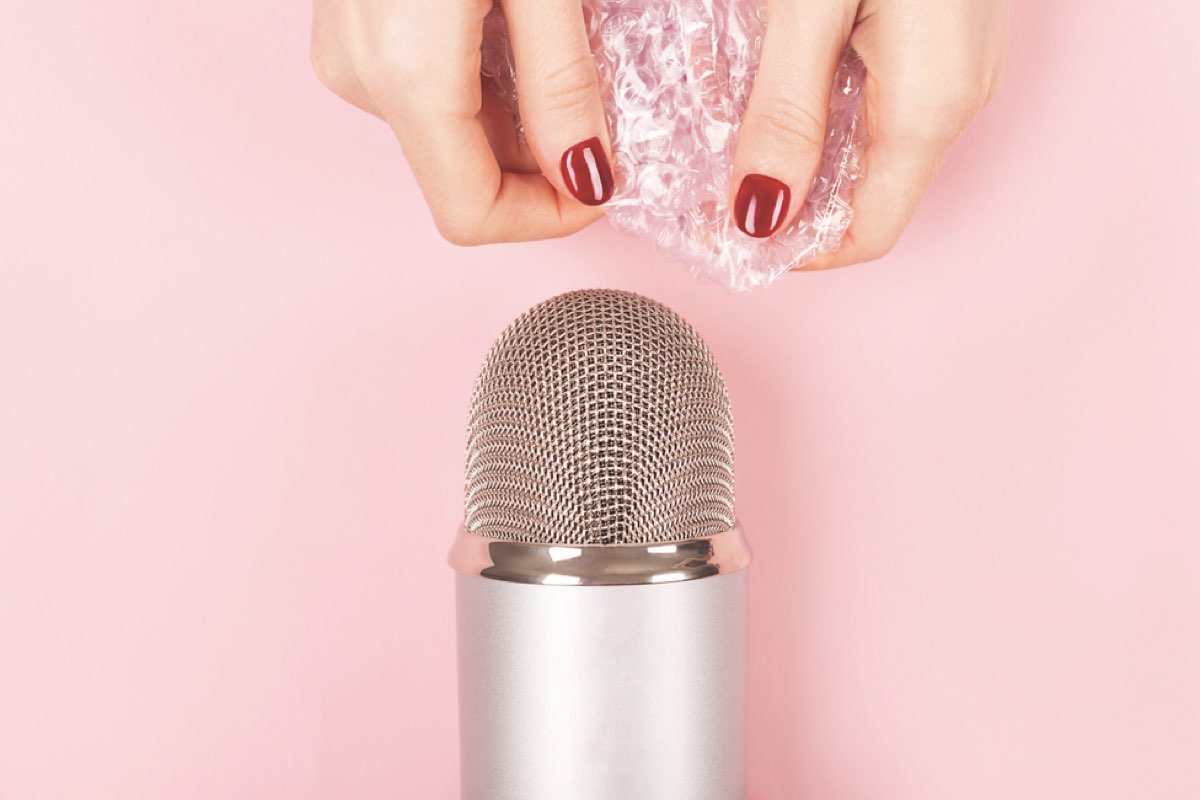Your appetite-regulating hormones are just one of the reasons why you raid the biscuit tin when you’re tired. Here we get the experts to explain exactly why we’re more hungry after a bad night’s sleep…
Why do we eat more when we’re tired?
It’s no coincidence that you crave junk food when you’ve had a bad night’s sleep. In fact, there are multiple reasons why we eat more sugary and carbohydrate-rich foods when we’re tired. According to nutritionist Jenna Hope, lack of energy, changes in appetite-related hormones and low mood can all play a part in why we’re more hungry after a bad night’s sleep.

“Research shows that a lack of sleep significantly increases ghrelin (the hunger hormone) and decreases leptin (the satiety hormone),” she says. “This combination means that we’re likely to be feeling hungrier than normal due to the ghrelin but at the same time we need even more food to feel full due to the low levels of leptin.”
Why do we crave carbohydrate-rich and sugary foods when we’re running on empty?
Moreover, poor sleep has been shown to stimulate the endocannabinoid system (ECS), the system that plays an important role in food reward. “The activation of the ECS leads to an increase in snacking and the desire for higher energy foods. These foods activate the reward component of the brain and can therefore make us feel better,” she explains.

“When it comes to snacking, food cravings and overeating individuals often blame themselves for their ‘lack of willpower’ but the physiological changes highlighted above explain why this is not merely associated to willpower. Sleep deprivation generates biochemical changes in the body, which drives us to increase our food intake and desire for highly palatable foods.”
Jenna also points out that carbs are a source of fast releasing energy, which is helpful when the body is low in energy. Furthermore, they are essential for the production of serotonin, our happy hormone, and therefore consuming them may boost our mood.
Tips to eat our way through a sleep-deprived day?
So, what are her top tips to eat our way through a sleep-deprived day? “Opt for high protein meals and snacks to stabilise energy levels and increase satiety in order to keep ghrelin (the hunger hormone) at bay. Additionally, ensure that you’re staying hydrated to prevent misinterpreting thirst as hunger and therefore overeating,” she says.
Jenna also promotes exercising in the morning, which helps manage glucose levels and being more aware of your food consumption to help reduce “mindless eating”.

What sleep expert Lisa Sanfilippo has to say about why we’re more hungry after a bad night’s sleep
Want to know what a sleep expert has to say on the matter? “I’ve experienced the less-sleep, more eat phenomenon myself,” says Lisa Sanfilippo, who specialises in sleep recovery. “When I was at my worst states of insomnia, I’d be ravenous after a particularly rocky night’s sleep. Not just wanting caffeine, but wanting to stock up on sugars, carbs, proteins, anything to fuel me through.”
But have there been any studies to test the theory that people who sleep less consume more calories? Yes, in 2012 a study funded by the US National Institutes of Health, the Minnesota Obesity Center, and the Mayo Clinic recruited 19 healthy men and played with the amount of sleep they got during the day. They also gave them access to as much food as they wanted. One group had a full night’s sleep, while the other was given only about five hours to sleep – about 2/3 of what you’d need on average. The more sleep deprived group took in, on average, more than 500 calories more per day than the normally-sleeping group.
What can we can do to beat the cycle?
Eat vegetables and definitely don’t snooze, recommends Lisa. “When we’ve had a sleepless night, what we really need is a good dose of healthy food. Pack in the greens and proteins and factor in some daytime rest to put energy back on the grid. Not a nap that messes up your sleep-wake cycles, but a 10-minute rest restorer like the legs on the chair pose.”
Main image: Shutterstock
Get your weekly DOSE fix here: SIGN UP FOR OUR NEWSLETTER

